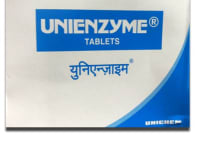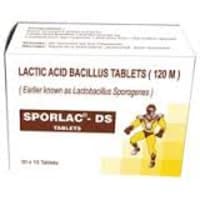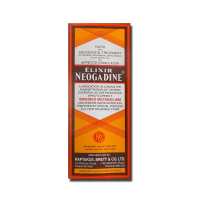USED FOR:
Anal fissure
Local anesthesia (Numb tissues in a specific area)
Piles
COMPOSITION:
Lidocaine Topical (2.5% w/w)
Prilocaine Topical (2.5% w/w)
Therapeutic Uses:
pain analgesics

No interaction found

PROBABLY SAFE
Satisfaction Gel is probably safe to use during pregnancy.Animal studies have shown low or no adverse effect on the foetus, however, there are limited human studies. Please consult your doctor.

Satisfaction Gel is probably safe to use during lactation. Limited human data suggests that the drug does not represent a significant risk to the baby.

Do not drive unless you are feeling well.Certain areas of your body will be numb for about 2-4 hours after having this medicine. This may affect your ability to drive.

Satisfaction Gel is probably safe to use in patients with kidney disease. Limited data available suggests that dose adjustment of Satisfaction Gel may not be needed in these patients. Please consult your doctor.

Satisfaction Gel is probably safe to use in patients with liver disease. Limited data available suggests that dose adjustment of Satisfaction Gel may not be needed in these patients. Please consult your doctor.
Uses of Lidocaine Topical
Lidocaine Topical is used for anal fissure, piles, local anesthesia and mouth sores.
How to use Lidocaine Topical
Use this medicine in the dose and duration as advised by your doctor. Check the label for directions before use. Apply it on the affected area and allow it to stay before spitting or rinsing.
How Satisfaction Gel works
Lidocaine Topical works by blocking pain signals from the nerves to brain which decreases the sensation of pain.
Lidocaine belongs to a class of medications called as local anesthetics. It works by stopping the sensation of pain by acting on peripheral nerves in the body.
Common Abnormal sensation, Application site swelling, Skin redness.
Expert advice for Lidocaine Topical
Avoid using higher quantity of lidocaine than recommended as this can cause serious side effects.
Do not apply lidocaine on open wounds or damaged areas (especially in mouth).
Consult your doctor before using lidocaine in children < 12 years age.
Tell your doctor if you experience irritation or if any infection appears at the site of application.
Lidocaine is only meant to be applied on the affected area and should not be consumed orally or instilled into eyes.
In case of accidental direct contact with your eyes, wash your eyes with water immediately and seek medical attention if any irritation persists.
Tell your doctor if you are pregnant, planning to become pregnant or are breastfeeding.
Do not use if you are allergic to lidocaine hydrochloride, tetracaine, any other local anesthetics or any of its ingredients.
Do not use if you have porphyria (a rare blood pigment disorder that severely affects skin and other organs).
Q. Are lidocaine, lignocaine, and xylocaine the same things?
Yes. These are all the other names local anesthetic, lidocaine. Lidocaine acts by stopping the sensation of pain by acting on peripheral nerves in the body
Q. Is lidocaine an opiate/ narcotic/ steroid drug/ omega 3/ nitrates/ cholesterol/ contain codeine/ sulpha?
No. Lidocaine (Lox) is an amide type local anesthetic used to relieve pain. It is not an opiate narcotic, steroid, omega 3, nitrates and cholesterol. It does not contain codeine or sulpha
Q. Is lidocaine and Lox2 safe?
Lidocaine (also available as Lox2) is safe if used in prescribed dose for prescribed duration as advised by your doctor.
Q. Is lidocaine available over the counter?
No. It is available only by prescription given by your doctor.
Uses of Prilocaine Topical
Prilocaine Topical is used for local anesthesia.
How to use Prilocaine Topical
Use this medicine in the dose and duration as advised by your doctor. Check the label for directions before use. Apply it on the affected area and allow it to stay before spitting or rinsing.
How Satisfaction Gel works
Prilocaine Topical works by blocking pain signals from the nerves to brain which decreases the sensation of pain.
Common Application site itching, Application site swelling, Burning sensation, Changes in skin color, Skin rash, Skin redness.
Expert advice for Prilocaine Topical
Inform your doctor if you have a blood disorder/family history of a condition called methemoglobinemia (production of abnormal amount of methemoglobin - a form of haemoglobin, in blood) or other conditions such as glucose-6-phosphate deficiency, any genetical enzyme deficiency, anemia or a skin condition called atopic dermatitis.
Protect the area of application from injury as it may continue to be numb for few hours after the procedure. Avoid scratching/ rubbing the area or exposing it to heat/cold until normal sensation resumes.
Do not apply cream to larger areas or for longer times than those recommended.
Avoid direct contact of cream with your eyes. In case of direct contact, wash your eyes with water immediately and seek immediate medical attention.
Inform your doctor if you are using/have recently used any other local anaesthetic or medicines to treat an uneven heart beat or medicines called sulphonamides.
Take precaution while driving or operating machinery as prilocaine may make you feel sleepy or may cause temporary loss of sensation and muscle function.
Tell your doctor if you are pregnant, planning to become pregnant or are breastfeeding.
Do not use if you are allergic to prilocaine or any of its ingredients.
Do not use if you are allergic to amide-type local anaesthetics.
Do not use if you have a condition/family history of methemoglobinemia.
Do not use if Infants
Q. Is prilocaine an amide or ester?
Prilocaine is an amide
Q. What is prilocaine topical used to treat?
Prilocaine topical is used as a local anesthetic to numb the skin/surfaces during superficial minor surgery and medical procedures
Q. Does prilocaine have epinephrine?
No, Prilocaine does not have epinephrine
Q. Is prilocaine stronger than lidocaine?
Prilocaine is similar to lidocaine but does not cause vasodilation and has lower CNS toxicity.


 Satisfaction Gel
Satisfaction Gel  Bookmark
Bookmark





















